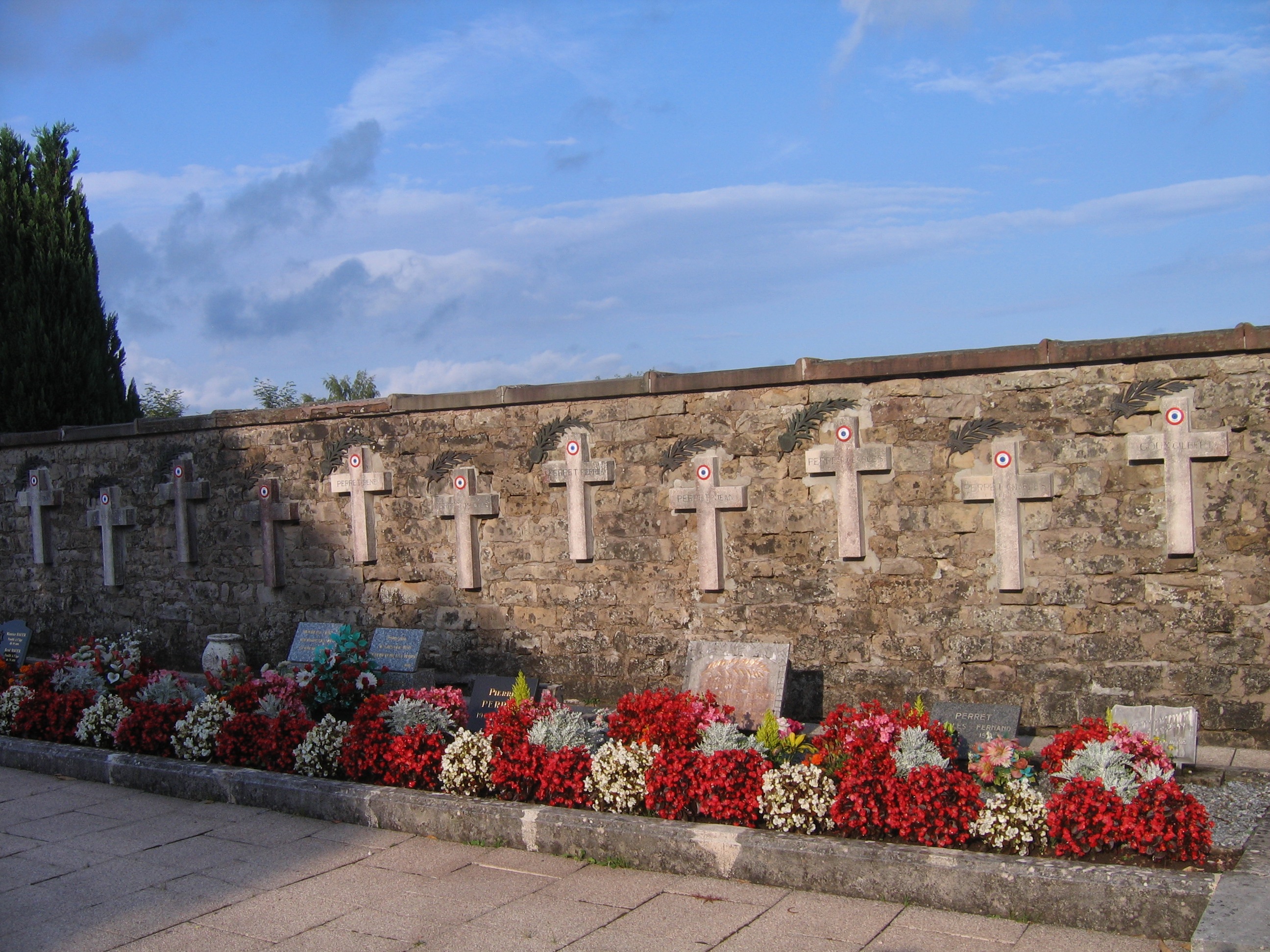Machinegun Nests
In the days following the massacre, life had to continue for the Etobonais. Jules Perret worked in the forge (where he sabotaged German materials and equipment) and in the fields. The Germans were digging in around the Villages du Bois, preparing for an Allied attack. There were still a few secrets hidden in the woods, though: Jarko, the Serb, had returned and needed food and shelter. German patrols had discovered some of the Indian soldiers camped in the forest. When would Etobon be free? Would anyone survive?
Saturday, October 7
When you go to bed without undressing, it’s easy to be ready in the morning. Everything is calm. We take care of the cows, and Totor. I hear an airplane, then the raspy voice of a boche who’s sleeping at our house: “Philippe, terrible Philippe!” He takes the child in his arms and tickles him with his beard. Here’s one who’s had enough. He asks us for civilian clothes so he can desert. “Not gut, the var!”
Near evening, with the terrible Philippe, we pick apples. The cannons, all around, thunder near and far. In front of us, under the apple trees of the Champs du Chêne, one gun fires constantly. The shells fly overhead, not very high. The child follows their path with his finger. “Fiouuuuu – that one went quick, I couldn’t even see it. Why?” Then airplanes, fired on furiously, without result.
The postman Georges Bouteiller, brought the mail. As he went through Chagey, Captain Blum of the Cossacks forbid him to go further. He complained to the commandant that he’d been told a postman could move about without papers.
We’ve decided to feed Jarko and build him a shelter.
This morning, Julie Blondin, wife of Frédéric Isaac, died.
Sunday, October 8
It’s the usual time to go to church. But now – our pastor was deported to Germany – we have no one. I’m going to write to the Inspector {bishop}, M. Philippe Poincenot. After what’s happened to us, we need God now more than ever.
Five blacks just passed by, surrounded by Germans, the Hindus of the Chateau who’ve given themselves up, passing themselves off as Moroccan deserters. In passing, they asked mama, “And Jacques? Dead also?”
Everywhere, in the orchards, the boches are digging machine gun nests.
An ambulance departs quickly to pick up the bodies of three officers who were blown up by their own mines, near Frédéric-Fontaine, where the front is. The Americans have occupied the quarries.
What a beautiful autumn day, one hundred times more beautiful than the most beautiful spring day! I was able to take food, a hook, a pick, some blankets, an overcoat and some clothing to Jarko. He has to be well hidden, because the boches are all around him, and the telephone line passes nearby.
Still no news from Jean. Does he know of our loss?
Coming back from seeing Jarko, I ran into the youngest of the little boches – seventeen years old – who is hiding out with two buddies at Moulinlou. These three heroes have quit the war. They sneak around with their rifles on their backs, living by stealing. To understand, you have to know that, of the two or three hundred boches who are here, there are men from maybe ten different regiments, infantrymen, sailors, aviators, artillerymen, all mixed together, not knowing each other, including kids of fifteen years old. So, sneaking around is easy.
As soon as I got to the house, a boche asks for the “schmid”, that is to say the blacksmith. He holds up a piece of metal and explains, “Machine broke! Broke! Kaput … Repair!” Yeah, buddy, I’ll fix it for you. Come on! I put it in the vice and stretched it to the point where it was ready to crack. “How much money?” “None.” He left thrilled, leaving a fifty-franc note on the workbench. “Nix return money.”
Finally, a little walk to the shelter at the bottom of la Goutte Benay. Everything was intact, even M.P.’s typewriter, hidden under some roots, but it was damp.

 Katherine Douglass
Katherine Douglass